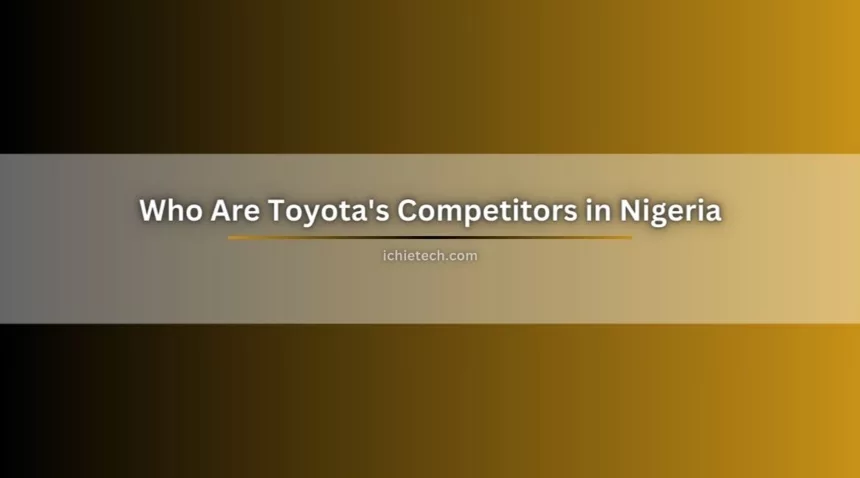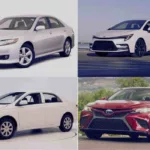Toyota is a Japanese multinational automotive manufacturer headquartered in Toyota, Aichi, Japan. Founded as a textile company in 1918 by Sakichi Toyoda, Toyota has grown to become one of the world’s largest automakers. The company produces a wide range of vehicles, including cars, trucks, buses, and SUVs. Toyota is known for its reliable and fuel-efficient vehicles, and it is one of the most popular brands in the world.
Toyota’s Market Share in Nigeria
Toyota is the most popular car brand in Nigeria. In 2022, Toyota accounted for 25% of all new vehicle sales in the country. This is due in part to the company’s strong reputation for quality and reliability. Toyota vehicles are also relatively affordable, which makes them an attractive option for Nigerian consumers.
Toyota’s Competitors in Nigeria
Toyota faces a number of competitors in the Nigerian market. Some of its most significant competitors include:
1. Honda
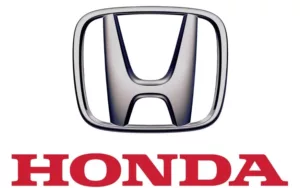 Honda Motor Company, Ltd. is a Japanese public multinational conglomerate corporation headquartered in Minato, Tokyo, Japan. The company was founded in 1948 and is the third-largest automaker in Japan. Honda is known for its reliable and fuel-efficient vehicles, and it is one of the most popular brands in the world.
Honda Motor Company, Ltd. is a Japanese public multinational conglomerate corporation headquartered in Minato, Tokyo, Japan. The company was founded in 1948 and is the third-largest automaker in Japan. Honda is known for its reliable and fuel-efficient vehicles, and it is one of the most popular brands in the world.
2. Mercedes-Benz
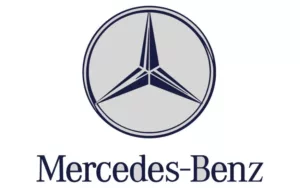 Mercedes-Benz Group AG is a German multinational automobile manufacturer headquartered in Stuttgart, Baden-Württemberg, Germany. The company was founded in 1926 and is the third-largest automaker in the world. Mercedes-Benz is known for its luxury vehicles, and it is one of the most popular brands in the world.
Mercedes-Benz Group AG is a German multinational automobile manufacturer headquartered in Stuttgart, Baden-Württemberg, Germany. The company was founded in 1926 and is the third-largest automaker in the world. Mercedes-Benz is known for its luxury vehicles, and it is one of the most popular brands in the world.
3. Hyundai
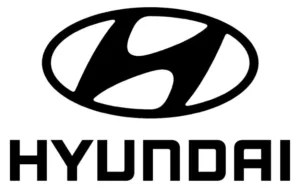 Hyundai Motor Company is a South Korean multinational automotive manufacturer headquartered in Seoul. It is the largest automaker in South Korea and the fifth-largest in the world. The company was founded in 1967 and has since grown to become a global leader in the automotive industry. Hyundai is known for its reliable and affordable vehicles, and it is one of the most popular brands in the world.
Hyundai Motor Company is a South Korean multinational automotive manufacturer headquartered in Seoul. It is the largest automaker in South Korea and the fifth-largest in the world. The company was founded in 1967 and has since grown to become a global leader in the automotive industry. Hyundai is known for its reliable and affordable vehicles, and it is one of the most popular brands in the world.
4. BMW
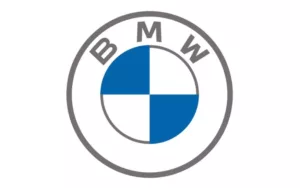 Bayerische Motoren Werke AG, commonly referred to as BMW is a German multinational corporation that produces luxury vehicles and motorcycles. The company was founded in 1916 and is headquartered in Munich, Bavaria, Germany. BMW is known for its high-performance vehicles, and it is one of the most popular brands in the world.
Bayerische Motoren Werke AG, commonly referred to as BMW is a German multinational corporation that produces luxury vehicles and motorcycles. The company was founded in 1916 and is headquartered in Munich, Bavaria, Germany. BMW is known for its high-performance vehicles, and it is one of the most popular brands in the world.
5. Kia
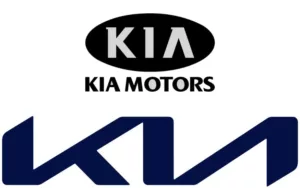 Kia Motors Corporation is a South Korean multinational automotive manufacturer headquartered in Seoul. It is the second-largest automaker in South Korea and the fourth-largest in the world. The company was founded in 1944 and has since grown to become a global leader in the automotive industry. Kia is known for its stylish and affordable vehicles, and it is one of the most popular brands in the world.
Kia Motors Corporation is a South Korean multinational automotive manufacturer headquartered in Seoul. It is the second-largest automaker in South Korea and the fourth-largest in the world. The company was founded in 1944 and has since grown to become a global leader in the automotive industry. Kia is known for its stylish and affordable vehicles, and it is one of the most popular brands in the world.
6. Nissan
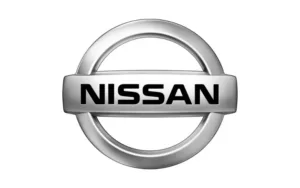 Nissan Motor Company, Ltd. is a Japanese multinational automotive manufacturer headquartered in Nishi-ku, Yokohama, Japan. The company was founded in 1933 and is the second-largest automaker in Japan. Nissan is known for its innovative and affordable vehicles, and it is one of the most popular brands in the world.
Nissan Motor Company, Ltd. is a Japanese multinational automotive manufacturer headquartered in Nishi-ku, Yokohama, Japan. The company was founded in 1933 and is the second-largest automaker in Japan. Nissan is known for its innovative and affordable vehicles, and it is one of the most popular brands in the world.
7. Ford
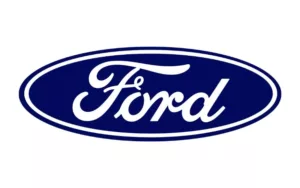 Ford Motor Company is an American multinational automaker headquartered in Dearborn, Michigan, United States. The company was founded in 1903 and is the fifth-largest automaker in the world. Ford is known for its iconic vehicles, such as the Mustang and the F-Series pickup truck.
Ford Motor Company is an American multinational automaker headquartered in Dearborn, Michigan, United States. The company was founded in 1903 and is the fifth-largest automaker in the world. Ford is known for its iconic vehicles, such as the Mustang and the F-Series pickup truck.
8. Volkswagen
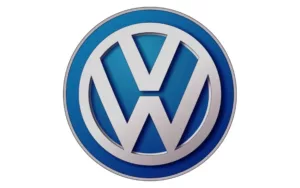 Volkswagen Group AG is a German multinational automobile manufacturing company headquartered in Wolfsburg, Lower Saxony, Germany. The company was founded in 1937 and is the second-largest automaker in the world. Volkswagen is known for its reliable and affordable vehicles, and it is one of the most popular brands in the world.
Volkswagen Group AG is a German multinational automobile manufacturing company headquartered in Wolfsburg, Lower Saxony, Germany. The company was founded in 1937 and is the second-largest automaker in the world. Volkswagen is known for its reliable and affordable vehicles, and it is one of the most popular brands in the world.
These competitors offer a wide range of vehicles at a variety of prices. They are also investing heavily in research and development, which is leading to the development of more fuel-efficient and technologically advanced vehicles.
How Toyota Competes in Nigeria
Toyota competes in Nigeria by focusing on the following:
- Brand reputation: Toyota has a strong reputation for quality and reliability. This is a major advantage in the Nigerian market, where consumers are willing to pay a premium for vehicles that they can trust.
- Affordability: Toyota vehicles are relatively affordable, which makes them an attractive option for Nigerian consumers. However, Toyota is also facing increasing competition from Chinese automakers, which are offering even lower prices.
- Fuel efficiency: Toyota is known for its fuel-efficient vehicles. This is a major advantage in Nigeria, where fuel prices are high.
- Dealer network: Toyota has a strong dealer network in Nigeria. This makes it easier for consumers to find and purchase Toyota vehicles.
- Marketing: Toyota invests heavily in marketing in Nigeria. This includes advertising, sponsorships, and social media campaigns.
- Customer service: Toyota has a good reputation for customer service. This is important in Nigeria, where consumers expect good service from the companies they do business with.
The Future of Toyota in Nigeria
Toyota is well-positioned for future growth in Nigeria. The company has a strong brand reputation, a wide range of products, and a strong dealer network. Toyota is also investing heavily in research and development, which is leading to the development of more fuel-efficient and technologically advanced vehicles.
However, Toyota faces a number of challenges in the Nigerian market. These challenges include:
- Increased competition: Toyota is facing increasing competition from Chinese automakers, which are offering lower prices.
- Economic uncertainty: The Nigerian economy is fragile, and this could lead to a decrease in demand for new vehicles.
- Infrastructure challenges: Nigeria’s infrastructure is poor, and this could make it difficult for Toyota to sell its vehicles in rural areas.
Despite these challenges, Toyota is confident that it can continue to grow in the Nigerian market. The company is committed to Nigeria and is investing heavily in the country. Toyota is also working to improve its dealer network and its customer service.
Conclusion
Toyota is a major player in the Nigerian automotive market. The company has a strong reputation for quality and reliability, and it offers a wide range of products at a variety of prices. Toyota is well-positioned for future growth in Nigeria, but it faces a number of challenges, including increased competition, economic uncertainty, and infrastructure challenges.




